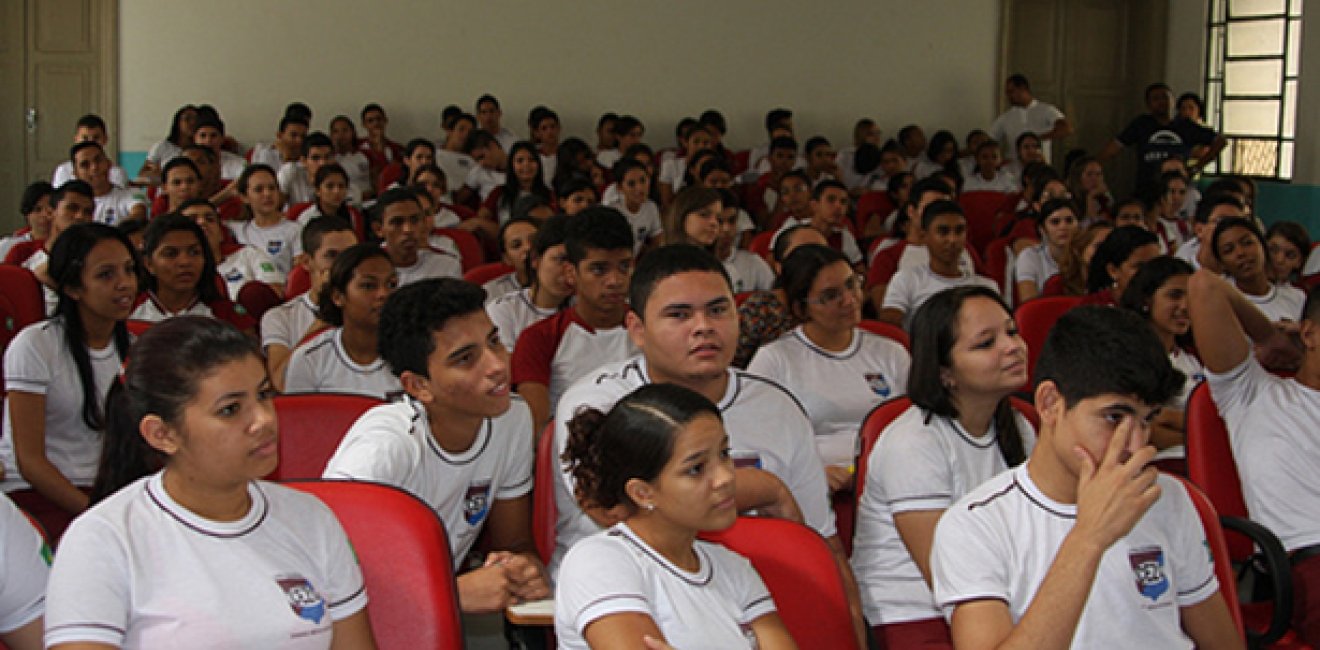
A blog of the Africa Program
Portuguese Translation of the Week
The project called "Black matters" takes African language, dance, cuisine and religion to classrooms at the Quilombola de Alternância Ana Moreira school (Ceqfaam), which has been working in the quilombola Santo Antonio dos Pretos community, in Codó, Maranhão, for four years.
O projeto denominado "Coisa de Preto" leva a linguagem, dança, culinária e religiosidade africana para a sala de aula do colégio Centro Quilombola de Alternância Ana Moreira (Ceqfaam), que funciona há quatro anos na comunidade quilombola Santo Antônio dos Pretos, na área rural de Codó, no Maranhão.
This article has been translated from Portuguese. Click here to read the original version on Africa 21 Digital.
Although it was not created for this purpose, "Black Matters" is the first project regarding afro-Brazilian culture. It marks the tenth anniversary of Law 10. 639/03 which requires African history and culture to be taught in schools.
"We are going to take advantage of the month of Black Consciousness (November) to strengthen and enhance the value we place on African culture. Several presentations will involve cities and nearby communities," said professor Solon da Nóbrega, creator of the project.
"Our roots have been gradually lost," declared Francisco Carlos da Silva, one of the leaders of the quilombola Centro de Expedito community. "Law 10.639 says we must incorporate the question of the importance and value of African history in all disciplines. Unfortunately, however, it does not. If you conduct research in the quilombola communities, not only in Codó but in the entirety of Brazil, it is rare to see a young quilombola member involved in cultural issues pertaining to his/her identity."
The project will continue to be developed in Ceqfaam over the new few years. "Students who do not live in quilombola areas do not take this seriously, but we do. For me, it is important, and I know it will help in my personal development and in the development of the community I am a part of," said Aldaísa da Silva, a 3rd year high school student.
At the end of this year, Aldaísa will graduate from high school with one plan: study to be admitted to an education program at a university. "I want to be a teacher and teach at my community. I see that my community is lacking professors."
Silva agrees with Aldaísa. According to him, the lack of education and prejudice, from both professors who come from other states, and from residents, especially religious ones, does not permit Law 10.639 from being met. Christian religions have gained ground in Quilombola communities, causing religions like Umbanda from having fewer supporters.
"We are dealing with quilombola communities that have a different history and unique cultural aspects and traditions that must be a part of the curriculum of these schools," he highlighted.
The ministry is also planning on taking undergraduate programs for certificates to teach in this area to 43 universities. "We are going to build a powerful network in Brazil that will, in addition to training teachers, produce new research and new perspectives on the issue. During a long time the people working in this field were not viewed through the lens of the law," he explained.
On the issue of the fulfillment of Law 10.639/03, the secretary of the Ministry of Education declared that much progress in needed in the production of material, not only for the training of teachers, but also to be developed in the classroom.
"The law has caused a paradigm shift. Whereas before there was a denial of racism in classrooms, today we have a demand for education about African and Afro-Brazil history and education for ethnic and racial relations," stated the secretary.
Article translated by Anna Cardenas, Staff Intern for the Brazil Institute at the Wilson Center.
Photo courtesy of Flickr user Perry B. McLeod.

Africa Program
The Africa Program works to address the most critical issues facing Africa and US-Africa relations, build mutually beneficial US-Africa relations, and enhance knowledge and understanding about Africa in the United States. The Program achieves its mission through in-depth research and analyses, public discussion, working groups, and briefings that bring together policymakers, practitioners, and subject matter experts to analyze and offer practical options for tackling key challenges in Africa and in US-Africa relations. Read more

Explore More in Africa Up Close
Browse Africa Up Close
The Innovative Landscape of African Sovereign Wealth Funds



